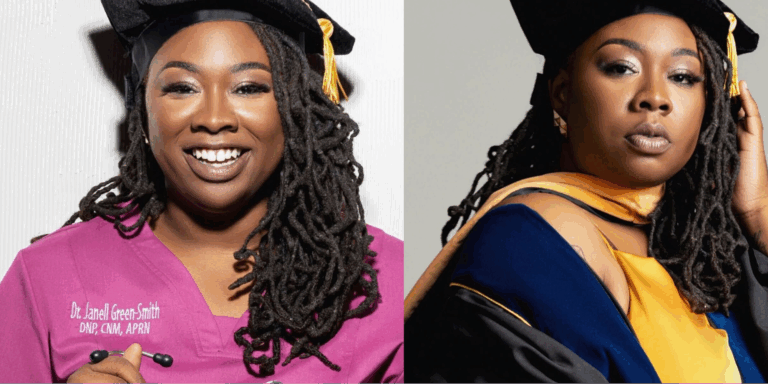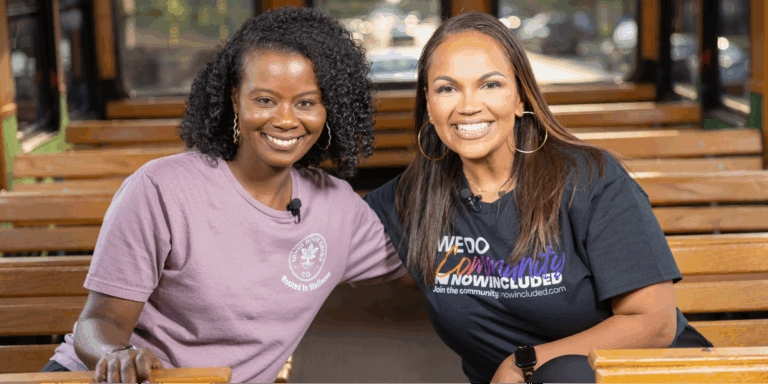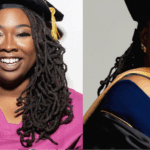Taking care of your health isn’t just about living in the moment—it’s about setting yourself up for the future. When we were in Miami, we caught up with two community members, Tyneisha and Anthony, who shared how they stay on top of their wellness. From being mindful of food choices to tracking heart health, their stories reflect the everyday efforts that make a big impact, especially in the Black community.

Tyneisha’s Approach: Movement, Mindful Eating, and Staying Hydrated
For Tyneisha, taking care of her health is all about longevity. “Having good health is like having a longer lifespan,” she said. “Also, just being younger, eating healthy—it’s good for you to live longer, not just for yourself but for future generations.”
That long-term mindset is what drives her to be intentional about movement and diet. She makes it a point to get up and be active every day. “Some things I do to take care of my heart are being more active, getting up in the morning, drinking more water, and running,” she explained. “I think people need to stop eating so much fast food. Fast food is really messing up the Black community because people go for quick meals when they don’t have money.”
She’s not wrong. A lack of access to affordable, nutritious food leads to many people relying on processed options that can contribute to high blood pressure, diabetes, and heart disease. But Tyneisha believes that small steps—like cooking more at home or choosing healthier alternatives—can make a difference.
To keep herself accountable, she uses an app on her phone to track how much she moves throughout the day. “It helps me see how active I am daily, like when I’m walking to work,” she said. “I also drink plenty of water.”
She also sees the value in using technology to support her wellness journey. “I do recommend people use a wearable because it tracks your goals and lets you know how you’re doing with your heart health.” Whether it’s an Apple Watch, a Fitbit, or another fitness tracker, having a constant reminder to stay active can be a game-changer for heart health.
Anthony’s Take: Consistency is Key to Staying Healthy
Anthony, from Broward County, understands the importance of prioritizing wellness, especially in the Black community. “It’s so important, especially for us, because there are a lot of diseases out here,” he said. “A lot of people are walking around with things that they can’t get rid of, so I feel like everyone should keep their health up to date and up to par.”
His approach to health is all about consistency and movement. “Some things I do to stay healthy? I work out,” he shared. “I always do push-ups to work on my upper body, and then the next day, I focus on my legs. I always give myself a day or two out of the whole week for a break.”
Strength training and regular movement are key ways to keep your heart strong, metabolism running, and body feeling good. For Anthony, working out isn’t just about looks—it’s about feeling his best.
To stay on top of his heart health, he uses his phone’s health app and wears a smartwatch. “I highly recommend a wearable,” he said. “On a scale of one to ten, I’d give it a ten because you can track your body and health—your steps, your heart rate, all that good stuff.”
Heart health isn’t something that happens overnight—it’s about the little choices made every single day. And for Anthony, those choices are all about movement, staying aware of his body, and making sure he doesn’t let his health slip through the cracks.
The Bigger Picture: Awareness and Community Conversations
One thing both Tyneisha and Anthony made clear is that staying healthy isn’t just a personal responsibility—it’s something that impacts the entire community.
For many Black Americans, access to healthcare, nutritious food, and health education isn’t always readily available. This is why conversations around wellness, preventative care, and lifestyle changes are so important. It’s not just about knowing what to do—it’s about having the support and resources to make those changes a reality.
During our chat with Anthony, we also touched on clinical research studies, an area where there’s still a lot of mistrust within the Black community. When asked if he knew what a clinical study was, he admitted, “No, I do not know what a clinical study is.” After learning more about how new medicines are tested before being released to the public, he was hesitant. “I feel like that’s messed up, like you shouldn’t really just test on people unless they volunteer,” he said. “If they ask me, I’d say no, because I don’t know what’s in that medicine.”
Health is a Daily Decision
Tyneisha and Anthony’s perspectives highlight the small but important choices that add up over time. Whether it’s tracking steps, cutting back on fast food, drinking more water, or staying consistent with workouts, taking care of your health is an ongoing process.
As Tyneisha put it, “I think it’s just promising—you get to live longer.”
And Anthony keeps it simple: “Everyone should keep their health up to date and up to par.”
At the end of the day, prioritizing wellness isn’t about perfection—it’s about being intentional, staying informed, and making the best choices with the resources you have. Because every step toward better health is a step toward a stronger, more vibrant future.
You Might Also Like:

Why Dr. Janell Smith’s Death Should Change How We Talk About Maternal Health








